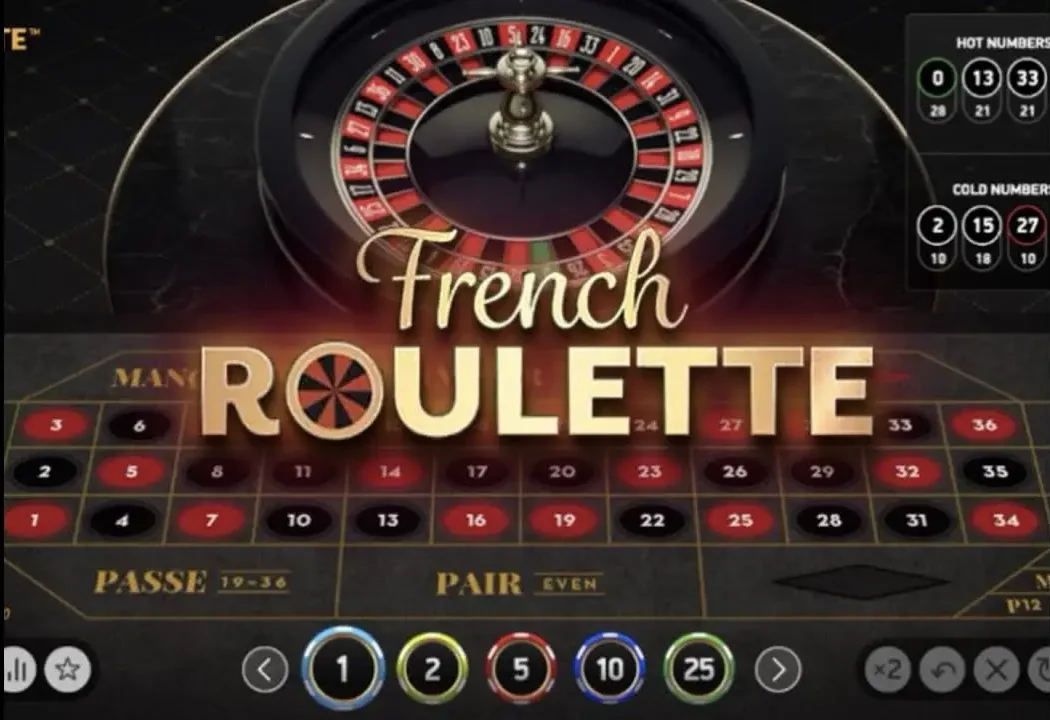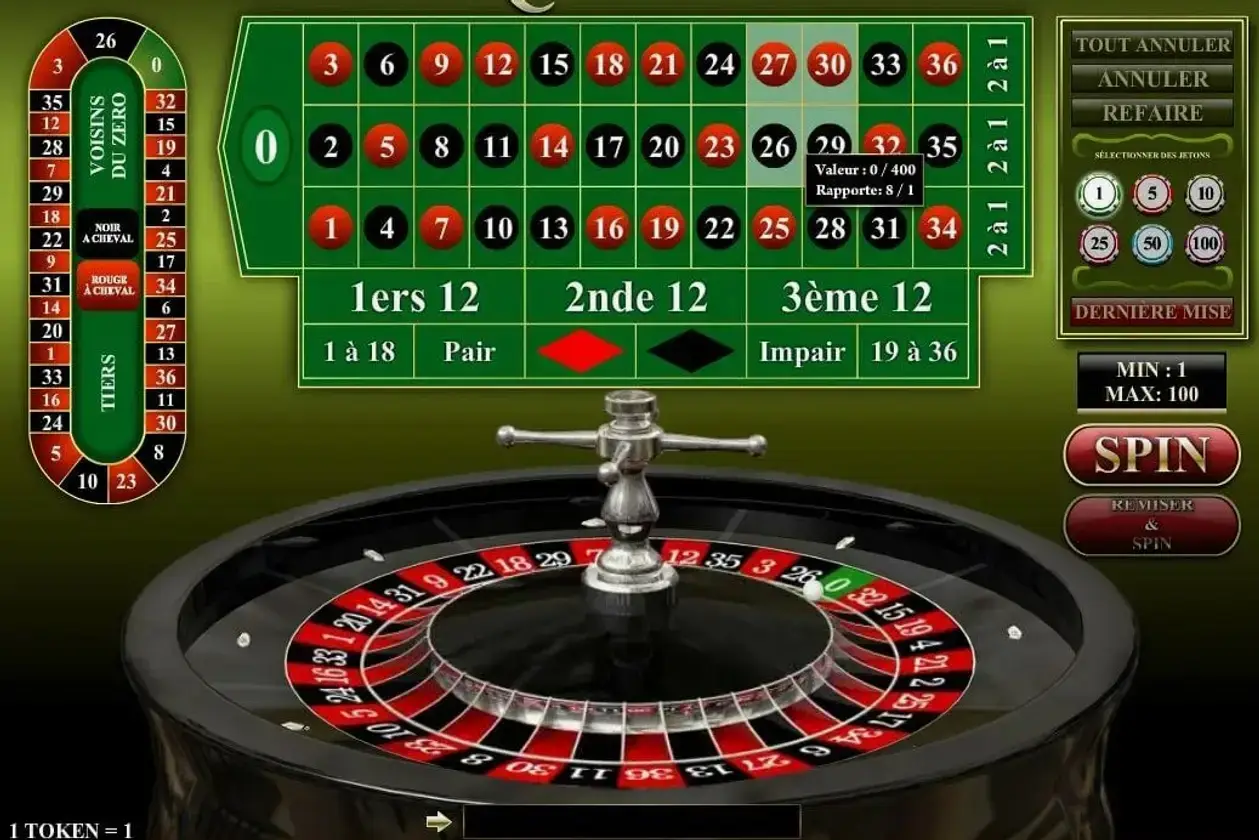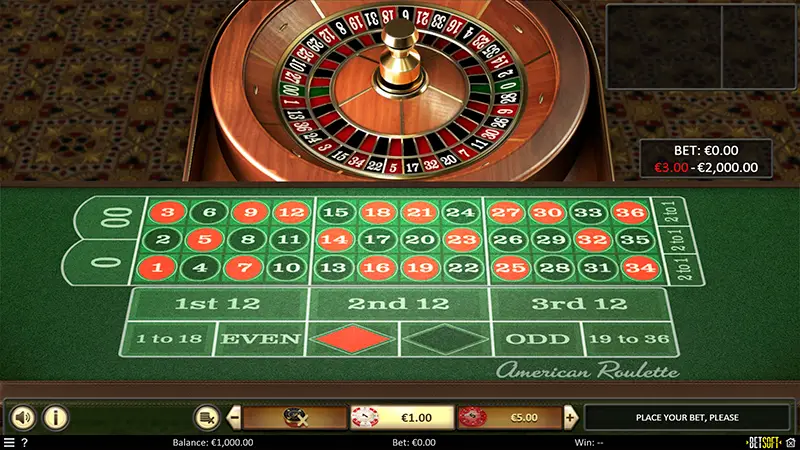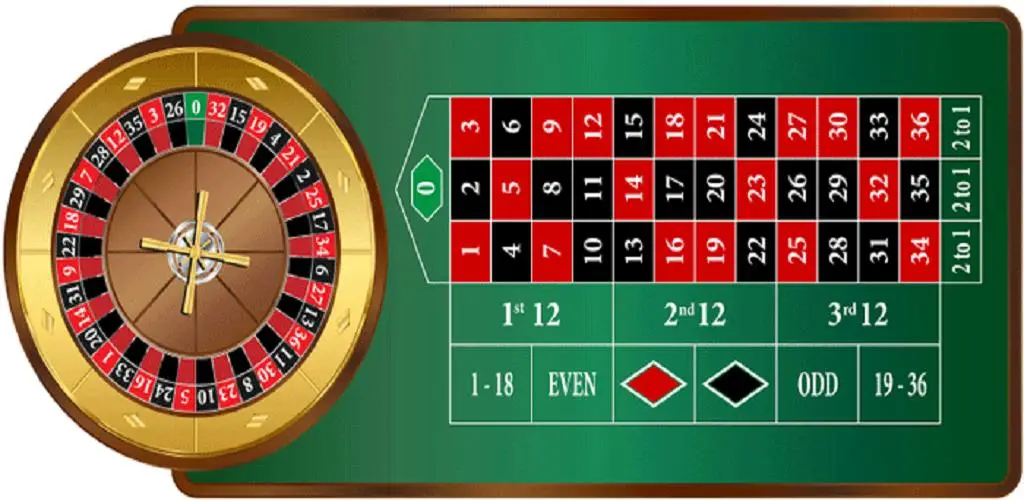Roulette is one of the most popular games of chance offered by almost all online casinos. Although it’s considered random, there are many betting strategies and systems that players use in the hopes of increasing their chances of winning. Let’s take a closer look at how effective different roulette strategies are and which ones work best in the long run.
Roulette Strategies: Are They Effective?
Before analyzing specific strategies, it’s important to understand that roulette is a highly random game. The wheel and betting system always remain within the mathematical expectation, giving the casino an advantage.
Each of the existing strategies is based on a specific betting approach, and it’s important to understand how they affect bankroll management and the probability of winning. Methods can be aggressive or more cautious, depending on how much money the player is willing to risk and the expected outcome.
Martingale: A Popular Strategy with Higher Risks
 The Martingale is one of the most well-known and widely used tactics in roulette. The idea is for the player to double their bet after each loss. The idea is that in the event of a win, a participant must cover all previous losses and receive a profit equal to the original calculation. The strategy is most commonly used for bets with 50/50 odds, such as black or red, odd or even, etc.
The Martingale is one of the most well-known and widely used tactics in roulette. The idea is for the player to double their bet after each loss. The idea is that in the event of a win, a participant must cover all previous losses and receive a profit equal to the original calculation. The strategy is most commonly used for bets with 50/50 odds, such as black or red, odd or even, etc.
Advantages:
- The strategy’s logic and simplicity.
- There is a high probability that the player will recover the lost money after several losses.
Flaws:
- The risk of quickly losing the entire amount if you have a prolonged streak of bad luck.
- High bets can result in significant financial losses if consecutive losses occur.
- Casinos may set betting limits that prevent you from doubling your bet indefinitely.
Is the Martingale strategy effective in roulette? The outcome depends on many factors, including bet sizes and table limits. However, this method does not offer a 100% guarantee of winning.
The d’Alembert Strategy: A Cautious Approach
The d’Alembert strategy is a more cautious method compared to the Martingale strategy. It is based on increasing the bet by 1 unit after a loss and decreasing it by 1 unit after a win. The model assumes that the results are balanced over the long term and that the player does not end up in a significant negative position.
Advantages:
- Lower risk compared to the Martingale.
- Suitable for players with small bankrolls, as bets increase slowly.
Disadvantages:
- Projected income is limited.
- A slow recovery is possible after a run of bad luck.
The effectiveness of the d’Alembert strategy can be assessed as average. This is a good tactic for players who do not want to risk large amounts and prefer a safer approach.
Fibonacci Strategy: Is Roulette Calculation Using Number Sequences Effective?
The scheme is based on the famous numerical sequence, where each number is the sum of the previous two. In roulette, the Fibonacci strategy consists of systematically increasing the bet after each loss. For example, if the move was 1, then the next move is 1 (1+0), then 2 (1+1), then 3 (2+1), and so on. Fibonacci tactics are often used in 50/50 bets and are considered less risky than the Martingale because the calculations increase more slowly.
Advantages:
- Lower risk than the Martingale.
- A logical approach that helps you control your bankroll.
Disadvantages:
- The strategy does not guarantee significant profits.
- It takes longer to recover from a series of losses.
The system is effective when used long-term, but it does not provide immediate results and does not exclude possible losses.
Anti-Martingale: A Strategy for Increasing Your Bet When Winning
The anti-martingale (or reverse martingale) is the opposite of the classic method. Here, the bet is increased not after a loss, but after a win. The idea is to continue betting the money you win to maximize your profits during lucky streaks.
Advantages:
- Reduced risk because the player doesn’t increase the bet after a loss.
- The possibility of significantly increasing profits through long winning streaks.
Disadvantages:
- High risk of losing all profits if the lucky streak is suddenly interrupted.
- May not produce significant results in short sessions.
Is the anti-martingale strategy effective in roulette?: The result depends on the player’s luck and their ability to correctly assess the moments to increase the bet. The technique can be successful in short gaming sessions with high winning possibilities, but it does not guarantee a stable income.
Comparison of Popular Roulette Strategies: Are These Tactics Effective and How Effective?
In general, the effectiveness of roulette strategies depends on many factors, including bet size, available funds, the player’s mental state, and luck. Each of the above models has its own advantages and disadvantages, and their use should be based on what the participant wants from a session: high risk with the potential for big wins or a more relaxed and moderate approach.
Strategy Comparison:
- Martingale: High efficiency in short sessions, but high risk of loss in long losses.
- D’Alembert: A safer approach with lower risks but less chance of big wins.
- Fibonacci: Allows you to control bets using a mathematical sequence, but requires more time to recover from losses.
- Anti-Martingale: Works effectively during winning streaks, but carries a high risk of losing profits when a winning streak is interrupted.
Should You Use Roulette Strategies?
 Are roulette strategies effective? The answer depends on many factors, including the player’s personal preference and luck. Each tactic has its advantages and disadvantages, and none guarantees a 100 percent win. The key to success is understanding the risks and being willing to change your approach depending on the situation.
Are roulette strategies effective? The answer depends on many factors, including the player’s personal preference and luck. Each tactic has its advantages and disadvantages, and none guarantees a 100 percent win. The key to success is understanding the risks and being willing to change your approach depending on the situation.



 French roulette differs from other types, such as American or European, in that it has a lower house edge. This is because the wheel only has one zero, unlike the American version, which has 00. The house edge of 1.35% is one of the lowest of all roulette types and offers the player a better chance of winning.
French roulette differs from other types, such as American or European, in that it has a lower house edge. This is because the wheel only has one zero, unlike the American version, which has 00. The house edge of 1.35% is one of the lowest of all roulette types and offers the player a better chance of winning. Thanks to the low odds, the unique right of La Partage, and the variety of bets, the format remains one of the most popular. Despite these advantages, French roulette also has its disadvantages. These include limited online availability and the difficulty of managing playing capital for beginners. Those who want to minimize risks and reap all the benefits should carefully choose an appropriate strategy and place bets according to their level of experience.
Thanks to the low odds, the unique right of La Partage, and the variety of bets, the format remains one of the most popular. Despite these advantages, French roulette also has its disadvantages. These include limited online availability and the difficulty of managing playing capital for beginners. Those who want to minimize risks and reap all the benefits should carefully choose an appropriate strategy and place bets according to their level of experience.
 The digital format of mini-roulette speeds up the process. One-click bets, no delays. Quick switching between tactics, control over the course of the game, and replay functions. In just 10 minutes, dozens of rounds are played, turning each mini-roulette strategy into a living mechanism that reveals what works and what doesn’t.
The digital format of mini-roulette speeds up the process. One-click bets, no delays. Quick switching between tactics, control over the course of the game, and replay functions. In just 10 minutes, dozens of rounds are played, turning each mini-roulette strategy into a living mechanism that reveals what works and what doesn’t. Mini-roulette strategies create a system where most people see chance. A correct bet adapted to the conditions is not luck, but precise calculation. The ability to read the game, change tactics in time, and avoid impulsive steps is the foundation of success. The version remains concise, fast, and easy to understand. For beginners, it is an ideal entry point. For experienced players, it is a testing ground for experimentation and analysis.
Mini-roulette strategies create a system where most people see chance. A correct bet adapted to the conditions is not luck, but precise calculation. The ability to read the game, change tactics in time, and avoid impulsive steps is the foundation of success. The version remains concise, fast, and easy to understand. For beginners, it is an ideal entry point. For experienced players, it is a testing ground for experimentation and analysis.
 Before you begin, it’s important to decide which table you want to play on. Each version of the game has significant differences that can affect the outcome. Tips for playing online roulette begin with an analysis of the game’s structure.
Before you begin, it’s important to decide which table you want to play on. Each version of the game has significant differences that can affect the outcome. Tips for playing online roulette begin with an analysis of the game’s structure. So remember that in online roulette, what matters is not the speed of the spin, but your inner peace. Here, intuition gives way to calculation and knowledge of the rules. While our tips won’t make you an invincible player, they will definitely help you eliminate the element of chance and chaos from your bets. Equipped with an understanding of game mechanics and a strategic approach, you can make the game more controllable and, therefore, more entertaining.
So remember that in online roulette, what matters is not the speed of the spin, but your inner peace. Here, intuition gives way to calculation and knowledge of the rules. While our tips won’t make you an invincible player, they will definitely help you eliminate the element of chance and chaos from your bets. Equipped with an understanding of game mechanics and a strategic approach, you can make the game more controllable and, therefore, more entertaining.









 Gambling fans often claim that some numbers fall out more often than others, and this supposedly proves casino intervention. In reality, each session is conducted according to the principle of mathematical expectation, and statistical deviations can be random. The phenomenon of ‘hot’ and ‘cold’ numbers has become popular among amateur analysts. Some believe that more frequently falling numbers will continue to appear, while others bet on opposite sectors. But the random number generator does not save the history of rotations – each new drop-out is independent of the previous ones.
Gambling fans often claim that some numbers fall out more often than others, and this supposedly proves casino intervention. In reality, each session is conducted according to the principle of mathematical expectation, and statistical deviations can be random. The phenomenon of ‘hot’ and ‘cold’ numbers has become popular among amateur analysts. Some believe that more frequently falling numbers will continue to appear, while others bet on opposite sectors. But the random number generator does not save the history of rotations – each new drop-out is independent of the previous ones. Online casino roulette is surrounded by common myths that mislead many players. Stories of backspin, predictable numbers and win-win strategies persist despite the proven workings of the random number generator and the transparent mechanics of licensed platforms. Winning does not depend on spin history, and the myth that casinos control results is based on the emotions of losing users. The right approach to the game includes studying probabilities, controlling your bankroll and realising that roulette is a game of chance where the house always has the upper hand.
Online casino roulette is surrounded by common myths that mislead many players. Stories of backspin, predictable numbers and win-win strategies persist despite the proven workings of the random number generator and the transparent mechanics of licensed platforms. Winning does not depend on spin history, and the myth that casinos control results is based on the emotions of losing users. The right approach to the game includes studying probabilities, controlling your bankroll and realising that roulette is a game of chance where the house always has the upper hand.

 Roulette bonuses at online casinos provide users with excellent opportunities to play with minimal risks and maximum chances of winning. Choosing the right promo, taking into account the wagering terms and using effective strategies will help players increase their chances of success and make the most of the gaming platforms’ offers.
Roulette bonuses at online casinos provide users with excellent opportunities to play with minimal risks and maximum chances of winning. Choosing the right promo, taking into account the wagering terms and using effective strategies will help players increase their chances of success and make the most of the gaming platforms’ offers.
 Although roulette is fundamentally a game of luck, some betting strategies can help minimise the risks and potentially improve the outcome of the game. The best known are betting systems such as Martingale, Fibonacci and others.
Although roulette is fundamentally a game of luck, some betting strategies can help minimise the risks and potentially improve the outcome of the game. The best known are betting systems such as Martingale, Fibonacci and others. How to win at online roulette? No single strategy can guarantee a steady win. Success depends on a combination of luck, the ability to manage your bets correctly and an understanding of the mechanics of the game. Using proven strategies such as Martingale or Fibonacci and bankroll management can help you optimise your game and increase your chances of winning.
How to win at online roulette? No single strategy can guarantee a steady win. Success depends on a combination of luck, the ability to manage your bets correctly and an understanding of the mechanics of the game. Using proven strategies such as Martingale or Fibonacci and bankroll management can help you optimise your game and increase your chances of winning.



 The developer is not just a name on the screen. It determines the appearance and mechanics of the game, as well as factors that can affect the player’s success. The best roulette providers are those who take into account all possible aspects of the process and provide users with the most fair conditions.
The developer is not just a name on the screen. It determines the appearance and mechanics of the game, as well as factors that can affect the player’s success. The best roulette providers are those who take into account all possible aspects of the process and provide users with the most fair conditions. Choosing the best roulette provider is not just a technical aspect. It is the path to a quality gaming experience. Popular developers offer a variety of formats that can cater to players of all preferences. Don’t skimp on quality – play certified games to get not only an exciting pastime, but also a fair chance of success.
Choosing the best roulette provider is not just a technical aspect. It is the path to a quality gaming experience. Popular developers offer a variety of formats that can cater to players of all preferences. Don’t skimp on quality – play certified games to get not only an exciting pastime, but also a fair chance of success.





